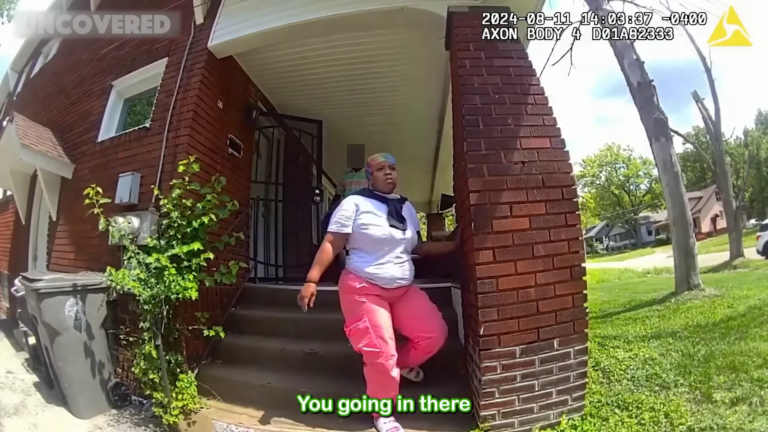
Squatting has emerged as a troubling issue in urban areas, and the case of Lance White Hunt highlights the complexities involved. This blog delves into the details of this particular case and the implications for homeowners and communities facing similar challenges.
Table of Contents
Introduction to Squatting
Squatting is not merely an act of occupying an abandoned property; it represents a serious legal and social dilemma. As urban environments continue to evolve, the rise of squatting has become a pressing issue that challenges property rights and community integrity. Homeowners find themselves vulnerable, facing perplexing legal battles against individuals who exploit loopholes in the system.

Photo by Patrick Perkins on Unsplash
This phenomenon creates a ripple effect, impacting neighborhoods and local economies. It is essential to understand the gravity of squatting and how it can lead to prolonged legal disputes, financial losses, and community unrest. The case of Lance White Hunt serves as a poignant example of the challenges homeowners face when confronting squatting and the complexities of the legal system that often favor the squatter.
The Case of Lance White Hunt
The case of Lance White Hunt is a striking illustration of the squatting crisis in New York City. Hunt’s actions not only disrupted the lives of the homeowners but also exposed the vulnerabilities in the legal framework governing property rights. His claim of tenancy, despite having no legitimate lease, raises serious questions about the protections afforded to property owners.

Photo by Birmingham Museums Trust on Unsplash
As the case unfolded, it became evident that Hunt was not merely seeking shelter; he was engaging in a calculated attempt to capitalize on the situation. This case underscores the urgent need for legislative reforms to protect homeowners from such predatory behaviors.
Discovery of the Squatter
The discovery of Lance White Hunt in the Jamaica Queens home was both shocking and alarming. As real estate broker Aona Bard arrived at the property, she was met with a distressing sight: the locks had been changed, and a man claimed to be the tenant. This moment encapsulated the confusion and fear that many homeowners experience when faced with a squatter.

Photo by Scott Webb on Unsplash
When confronted, Hunt insisted he had been living there since January, a statement Bard knew was false. This encounter highlights the audacity of squatters and the immediate need for homeowners to be vigilant. The situation escalated quickly, leading to police involvement, yet the resolution remained elusive.
Claims of Tenancy
Hunt’s assertion of being a tenant was not just a mere claim; it was a calculated strategy. In many cases, squatters leverage false documentation to support their claims, complicating the eviction process for homeowners. Hunt allegedly forged a lease and utility bills to substantiate his position, demonstrating a troubling trend among squatters who manipulate legal documents.

Photo by Ystallonne Alves on Unsplash
This tactic not only confuses law enforcement but also places an undue burden on homeowners who must navigate a complex legal landscape to regain control of their property. The implications of such claims extend beyond individual cases, affecting community trust and safety.
Police Intervention
When the police arrived at the scene, the situation took a turn. Hunt fled, but his actions had already set a precedent. The police, often caught in the middle of these disputes, face challenges in determining the rightful occupant. This ambiguity can lead to further complications, as the legal definitions of tenancy and squatting blur.

Photo by Felix Koutchinski on Unsplash
Law enforcement’s role in these scenarios is critical. They are tasked with enforcing the law while ensuring that the rights of all parties are respected. However, the lack of clear guidelines can lead to frustration for both homeowners and police officers alike. The urgency of addressing these legal gray areas cannot be overstated.
The Unprecedented Lawsuit
In an unexpected twist, Lance White Hunt took legal action against the homeowner and the real estate broker, claiming illegal eviction. This lawsuit represents a disturbing trend where squatters turn the tables on property owners, using the legal system to their advantage. Such actions can deter homeowners from pursuing legitimate eviction processes, fearing retaliatory lawsuits.

Photo by Melinda Gimpel on Unsplash
This unprecedented move reflects a broader issue within the legal framework that often favors those who exploit loopholes. It raises critical questions about the balance of power between property owners and squatters. The outcomes of such cases could set dangerous precedents, further complicating the landscape for homeowners.
The complexities surrounding squatting highlight an urgent need for reform. As communities grapple with the implications of these actions, it is vital to advocate for stronger protections for property owners. The time for decisive action is now, as the consequences of inaction only serve to empower those who seek to exploit the system.
Forged Documents and Charges
The use of forged documents is a common tactic among squatters, and Lance White Hunt’s case exemplifies this troubling trend. Prosecutors revealed that Hunt had allegedly created a fake lease and utility bills to support his claims of tenancy. This manipulation of documents not only complicates the eviction process but also undermines the integrity of property rights.

Photo by vuk burgic on Unsplash
As Hunt faced 18 charges, including identity theft and offering a false instrument for filing, the severity of his actions became apparent. The legal repercussions for such forgery are significant, yet they often do not deter individuals from attempting to exploit the system. This raises serious concerns about the effectiveness of current laws in addressing the issue of squatting.
The Plea Deal
In a surprising turn of events, Hunt opted for a plea deal, pleading guilty to lesser charges. This decision allowed him to avoid the full brunt of the law, which could have included up to 15 years in prison if convicted on all counts. Instead, he faces five years of probation and community service, a resolution that many believe is insufficient given the gravity of his actions.
The plea deal illustrates a significant flaw in the legal system, where individuals who engage in fraudulent activities can negotiate their way out of severe consequences. This creates a perception of leniency that can embolden other squatters to adopt similar strategies, knowing they may face minimal repercussions for their actions.
Consequences and Sentencing
The consequences of Hunt’s actions extend far beyond his own legal troubles. Homeowners like Aona Bard are left grappling with the emotional and financial fallout of such encounters. The legal process can be lengthy and costly, draining resources and causing significant stress for those affected.

Photo by Zachary Kadolph on Unsplash
Furthermore, the outcome of Hunt’s case raises questions about the effectiveness of current laws in deterring similar behavior. The community’s trust in the legal system is eroded when individuals can exploit loopholes without facing substantial penalties. This situation fosters an environment where squatting can flourish, ultimately impacting neighborhood stability and safety.
The Bigger Picture: The Squatter Crisis
The case of Lance White Hunt is not an isolated incident but part of a broader squatter crisis affecting urban areas. As cities continue to grapple with housing shortages and economic disparities, the prevalence of squatting is on the rise. This phenomenon poses significant challenges not only for homeowners but also for local governments and communities.
Squatting disrupts neighborhoods, leading to decreased property values and increased crime rates. Homeowners are left feeling vulnerable, often forced to navigate a legal maze that seems designed to protect the squatter rather than the rightful owner. It is imperative to address the underlying issues contributing to this crisis and advocate for stronger protections for property owners.
How to Protect Your Property
Given the rising threat of squatting, homeowners must take proactive measures to protect their properties. Here are some essential steps to consider:
- Regular Inspections: Conduct frequent checks on your property, especially if it is vacant, to deter potential squatters.
- Secure Entry Points: Install robust locks and security systems to make unauthorized access more difficult.
- Maintain Visibility: Keep the property well-lit and visible from the street to discourage squatting.
- Engage Neighbors: Foster relationships with neighbors who can help monitor your property and report suspicious activity.
- Legal Preparedness: Familiarize yourself with local laws regarding squatting and eviction processes, so you are ready to act if necessary.

Photo by Kyle Glenn on Unsplash
Implementing these strategies can significantly reduce the risk of squatting and protect your investment. However, it is equally important to advocate for legislative changes that strengthen property rights and provide better support for homeowners facing these challenges.
FAQs about Squatting
As the issue of squatting becomes more prevalent, many homeowners have questions about their rights and the legal implications of squatting. Here are some frequently asked questions:
- What defines a squatter? A squatter is someone who occupies a property without the owner’s permission, often claiming rights to the property through adverse possession or other legal loopholes.
- Can squatters claim ownership of a property? In some cases, if a squatter occupies a property for an extended period, they may claim ownership through adverse possession, though this varies by state.
- What should I do if I discover a squatter on my property? Contact law enforcement and consult with a legal professional to understand your rights and the appropriate steps for eviction.
- Are there legal protections for squatters? Yes, some states have laws that protect squatters, making it essential for homeowners to be aware of their local regulations.
- How can I prevent squatters from occupying my property? Implement security measures, maintain regular inspections, and engage with the community to deter potential squatters.

Photo by Ian Schneider on Unsplash
Understanding the complexities of squatting is crucial for homeowners facing this growing issue. By staying informed and taking proactive steps, property owners can better protect their rights and their investments.








